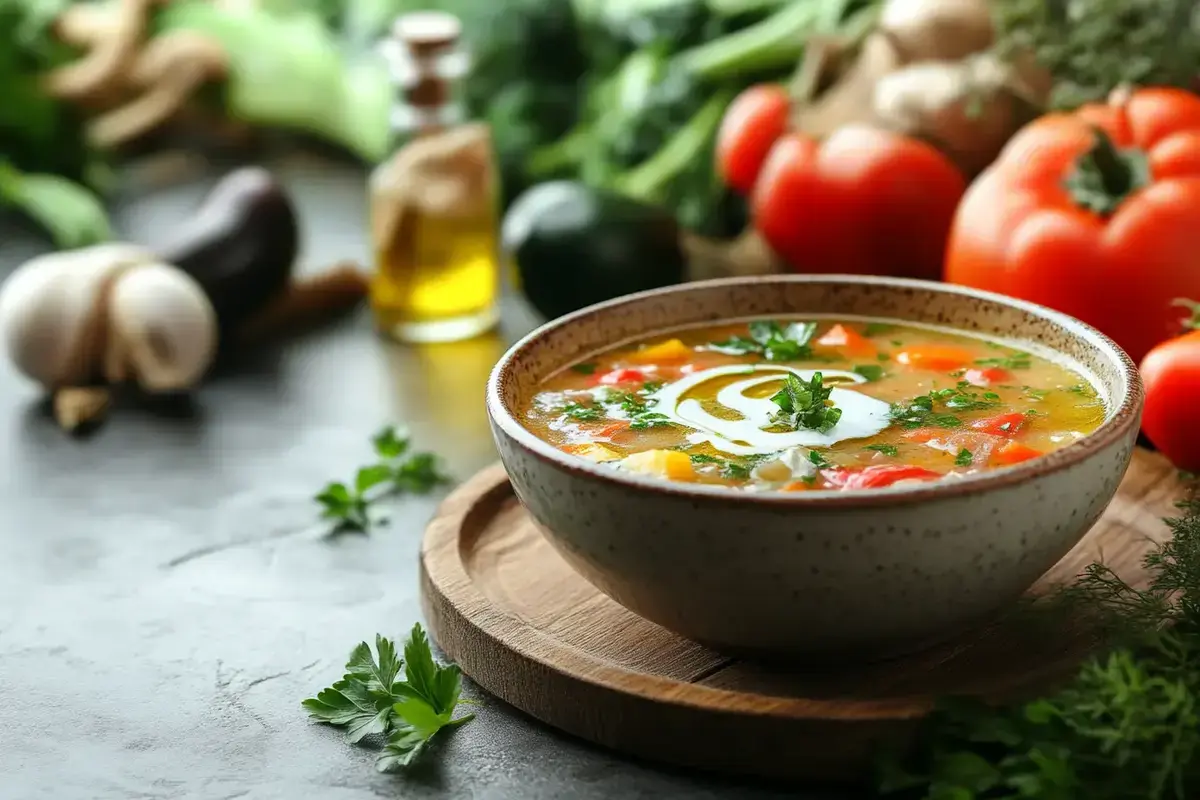In summary
- 🍂 Seasonal transition: Fall encourages a shift to more comforting dishes like soups, where the addition of fat is recommended.
- 🍲 Taste improvement: Fats like crème fraîche and olive oil enhance the flavors and texture of soups, making them more appealing, especially to children.
- 🥄 Nutritional benefits: These fats promote the assimilation of essential fat-soluble nutrients such as carotenes and vitamins HAS And K.
- 👩⚕️ Professional recommendation: Dr Laurent Chevallier advises the moderate integration of these fats to enrich the flavor and nutritional benefits of soups.
As fall approaches, our taste buds turn to more comforting foods to brighten up the gray, chilly days. Soups, the true stars of the season, can be transformed into tasty and nutritious dishes with a simple addition: fat such as crème fraîche or olive oil. Recommended by Dr. Laurent Chevallier, nutritionist, this addition is not only a matter of taste, but also a beneficial gesture for our health. Let’s find out together why enriching your soups with these elements can change your culinary experience and your well-being.
The virtues of fats in cooking
Adding fat to soups simply transcends the taste aspect; it also enriches the sensory experience of this traditional dish. Use sour cream or theolive oil in your soups gives them a velvety and creamy texture, while intensifying the natural flavors of vegetables and broths. For children or adults who shy away from a plate of soup, this addition can make all the difference, transforming a simple broth into a comforting and tempting dish.
Nutrition and nutrient assimilation
The benefits of adding fat to soups go far beyond pleasing the palate. These lipids play a crucial role in the absorption of fat-soluble nutrients such as the carotenesand vitamins HAS And Kessential to our health. By including fat in your soups, you facilitate the digestion and assimilation of these vital components, thereby maximizing the nutritional benefits of your meal.
Wise choice of fats
It is important to select the right fats to enrich your soups. There sour cream is perfect for adding softness and roundness to your preparations, while the butter can offer an unparalleled extra indulgence. For those looking for a healthier option, theolive oilwalnut oil, or sesame oil are excellent alternatives, providing essential fatty acids without compromising flavor. The key is to use these fats in moderation; half a teaspoon per person is enough to reap the benefits without excess.
Introducing fat into your soups is not just a taste pleasure, it is also a beneficial action for health, recommended by experts like Dr Laurent Chevallier. This culinary practice, which combines indulgence and well-being, can really transform your fall soups into comforting and nutritious dishes. For gourmets looking to improve not only the taste of their meals but also their nutritional value, adding fat is a tip that should not be overlooked. So, the next time you prepare a soup, consider adding a little cream or oil to enrich your taste experience while taking care of your health.

